Brent Scowcroft is the role model for how to do the job of national security adviser to the president of the United States. Scowcroft served two presidents, Gerald Ford and George H. W. Bush, after a distinguished career in the United States Air Force. His tenure in the Bush administration was particularly important as it was perhaps the most consequential foreign policy era for America in the last half century. One episode in the Gulf War in 1991 is illustrative of Brent’s genius.
Bush and Scowcroft were close friends as well as colleagues. They wrote a memoir together, aptly entitled “A World Transformed.” Scowcroft believed his highest priority was to make sure that the president was the recipient of all the views of his key national security team, not just those that he preferred. Bush had an all-star team with James Baker at State, Richard Cheney at Defense, Collin Powel as chairman of the Joint Chiefs of Staff, and Robert Gates as Brent’s deputy. Bush and Scowcroft were voracious consumers of intelligence, meeting with the Central Intelligence Agency’s President’s Daily Brief briefer every morning.
Brent kept the NSC staff deliberately small, a few dozen strong, so it would not become operational. Operations were the responsibility of the various agencies, not the NSC staff. He also had an aversion to large staff meetings which he found tedious and produced more bad decisions than wise ones. He delegated much of the administration of decisions to Gates and the deputies of the cabinet secretaries.
In 1989, Bush and Scowcroft were confronting the end of the Cold War which had dominated American foreign policy since 1945. The collapse of the Berlin Wall raised the very contentious issue of the reunification of Germany. The Tiananmen Square massacre in China shook Washington’s relationship with Beijing. The Soviet Union was on its last legs.
The Iraqi invasion of Kuwait on August 2, 1990 added to the policy challenges enormously. Bush was determined that the invasion “would not stand” and that the United Nations led by America would liberate Kuwait. The administration created a large international coalition to defeat Iraq sanctioned by Congressional support and U.N. resolutions. A half million Americans were deployed to Saudi Arabia.
At the CIA, we believed that Saddam Hussein would try to turn the Gulf crisis into an Arab-Israeli conflict to break up the coalition, especially its Arab core. Once the war began, we expected Iraq to fire its medium range Scud missiles at Tel Aviv to provoke Israeli retaliation and thus broaden the war. The Iraqis had scouted out launch sites for their mobile Scud launchers in western Iraq since early 1990, and then tested the missiles in the weeks leading up to the war in late 1990 and early 1991.
As expected, the Iraqis launched a missile attack on Tel Aviv as soon as Operation Desert Storm began. Bush and Scowcroft were determined not to let the war become an Arab conflict with Israel. If Israel joined the war by attacking western Iraq to retaliate against the Scuds, it would have to overfly Jordanian or Saudi air space. Jordan would be the most direct route. The Jordanians would protect their sovereignty and resist the Israelis, effectively making Jordan a de facto ally of Iraq. If they crossed Saudi territory, our two allies would be at war. In either case the war would broaden beyond Iraq’s aggression in Kuwait.
Israel in fact was interested in doing more than air strikes. The Israelis wanted to airlift a parachute brigade into western Iraq to search for the Scuds on the ground as well as in the air. The paratroopers would need constant supply missions to sustain them. This would have put the Jordanians in the middle of the conflict with dozens of Israeli aircraft in their air space.
King Hussein of Jordan had been Iraq’s closest ally in the eight-years-long Iraq-Iran war. He visited Baghdad more than 50 times during the Gulf War. He urged a negotiated deal in August 1990, breaking with Washington and Riyadh. The U.S.-Jordan relationship was in deep trouble, but the Bush team did not want to see Jordan and Israel at war, and the coalition splinter.
At Bush’s direction, Scowcroft devised a coordinated interagency strategy to discourage Israeli intervention. First, they sent American Patriot anti-missile systems to Israel with American crews to shoot down the Scuds. Never before had American soldiers fought to defend Israel. Second, Deputy Secretary of State Larry Eagleburger was dispatched to Israel to reassure Prime Minister Yitzhak Shamir of America’s support and to lobby for restraint. Third, the U.S. Central Command significantly increased the resources devoted to finding and destroying the mobile launchers, including with commando teams on the ground in Iraq.
Scowcroft also used another lever, the IFF codes. In combat, aircraft broadcast a coded message that identifies the aircraft as a friend or foe, this deconflicts the combatants. Without deconfliction and the IFF code, Israeli air force planes in Iraqi or Jordanian air space would be at risk from coalition aircraft. They could be shot down. The administration chose to withhold the IFF codes, a powerful signal to the Israelis that America wanted no retaliation but one that was deftly behind the scenes. It was an inaction with powerful but discrete impact. A retired Air Force lieutenant general understood how important the codes were better than anyone else.
The combination worked. Thankfully the Iraqi missiles had caused few casualties. The Iraqis fired 39 missiles at Israel killing two and injuring 230. In their memoirs, Bush and Scowcroft give Shamir great credit for resisting the calls for retaliation and staying out of the war.
It was a classic example of Brent’s leadership and advice. A combination of public and private steps that were carefully coordinated to persuade an ally that its long-term interests were better shaped by restraint than action. It was not flashy, but it was effective. Saddam was thwarted.
Scowcroft was the first of five national security advisers I worked for in four presidencies. I stayed in touch with him after and he was a frequent visitor at Brookings events. He will be missed.
The Brookings Institution is committed to quality, independence, and impact.
We are supported by a diverse array of funders. In line with our values and policies, each Brookings publication represents the sole views of its author(s).


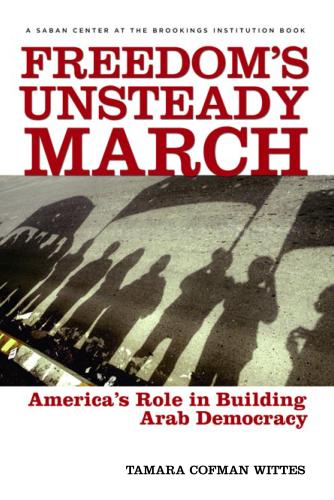
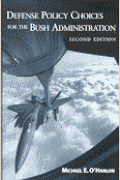
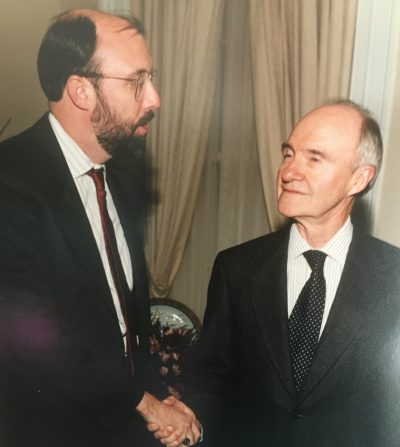
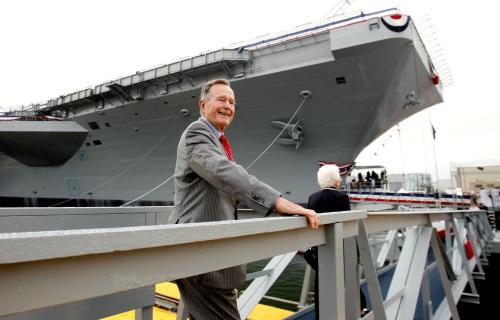
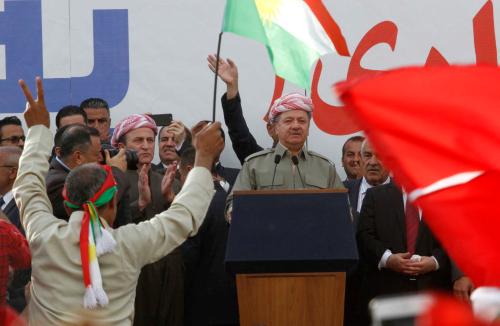
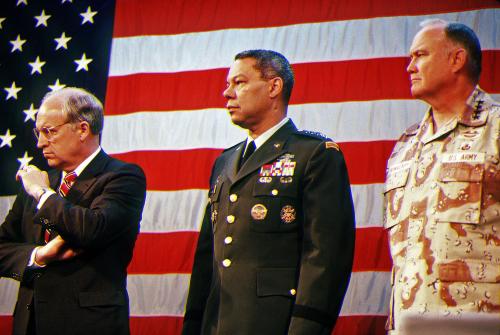




Commentary
Remembering Brent Scowcroft, a true national security maverick
August 10, 2020